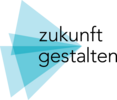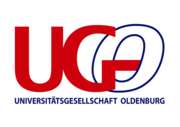Coordination
Project funding
Running time
April 2019 to June 2019
Zukunftswerstätten (Workshops of the future)
Zukunftswerkstätten (Workshops of the future): Sustainability, Migration, Digitalisation
The statement that the future was better in the past than today is a very common diagnosis of the present. Whether it is accurate or not can hardly be decided, but it does provoke questions: What happened to the future? How do we, with regard to sustainability, migration, or digitalisation, think about how we (want to) live together in 20 or 30 years? Who ‘makes’ the future? And how do drafts of the future affect the here and now?
The Zukunftswerkstätten (Future workshops) want to open up a space in which people from different areas of society can discuss these and other questions. We cordially invite you to enter into this dialogue and to reflect together on how, in the interplay of academics, politics, and the media public, blueprints of the future are created and become effective with regard to the topics mentioned. The focus is not only on the concrete content of future scenarios, but also on the way they are staged (iconically, narratively, scholastically, medially).
The Zukunftswerkstätten (Future workshops) consist of three thematic foci:
In Workshop 1 “Sustainability”, we examine the connection between sustainability and new forms of governance on the basis of impulse lectures on nudging, real-life laboratories and citizen participation. The following questions are central: How and by whom are people motivated to behave sustainably? What diagnoses of the present and what blueprints of the future are thereby produced? How are the social and political consequences of the associated interventions in current ways of life to be assessed?
In Workshop 2 “Migration”, we will reflect on visions and develop visions: How will, how must, how can, and how should the “migration society 2040” look like? Or has the term “migration society” even become obsolete in 2040? In order to pursue these visions, we will develop a collage of many voices and perhaps discard it again. Our guests from the fields of theatre, performance, and academics will present the result of their creative examination with an ‘impulse’, which will certainly result in ambivalent, irritating, and stimulating moments and food for thought.
In Workshop 3 “Digitalisation”, we want to talk with guests from the trades, academics, and politics about experiences in dealing with the digitalisation of the social, political, and economic, and discuss the associated ideas of the future as well as the effects that can already be observed today: What is being digitised and how, and with what political and social consequences? These questions will be taken up by contributions from the invited guests, which will provide starting points for the discussions in the workshop.
Programme:
Thu., 6 Sep. 2018
13.00–18.30: Workshop 1 “Sustainability”
Guests: Julius Rauber (ConPolicy GmbH, Institute for Consumer Policy), Annaliesa Hilger (University of Wuppertal), Jascha Rohr (Institut für partizipatives Gestalten Reinhard Schulz (Philosophy, University of Oldenburg)
Fri., 7 Sep. 2018
9.00–13.00: Workshop 2 “Migration”
Guests: Fatih Çevikkollu (cabaret artist), Gesine Geppert (dramaturgy, Oldenburg State Theatre), Monica van der Haagen-Wulff (performance artist and researcher, University of Cologne), Yasemin Karakaşoğlu (Head of the Department of Intercultural Education, Department of Education, University of Bremen)
Fri., 7 Sep. 2018
14.30–18.30: Workshop 3 “Digitalisation”
Guests: Andreas Fickenscher (Managing Director Fickenscher’s Backhaus), Ira Diethelm (Professor of Computer Science Didactics, University of Oldenburg); Jochen Meyer (Head of Department, R&D Health, OFFIS, University of Oldenburg; Self-Tracker), Nele Heise (Media Scientist, AlgorithmWatch)






